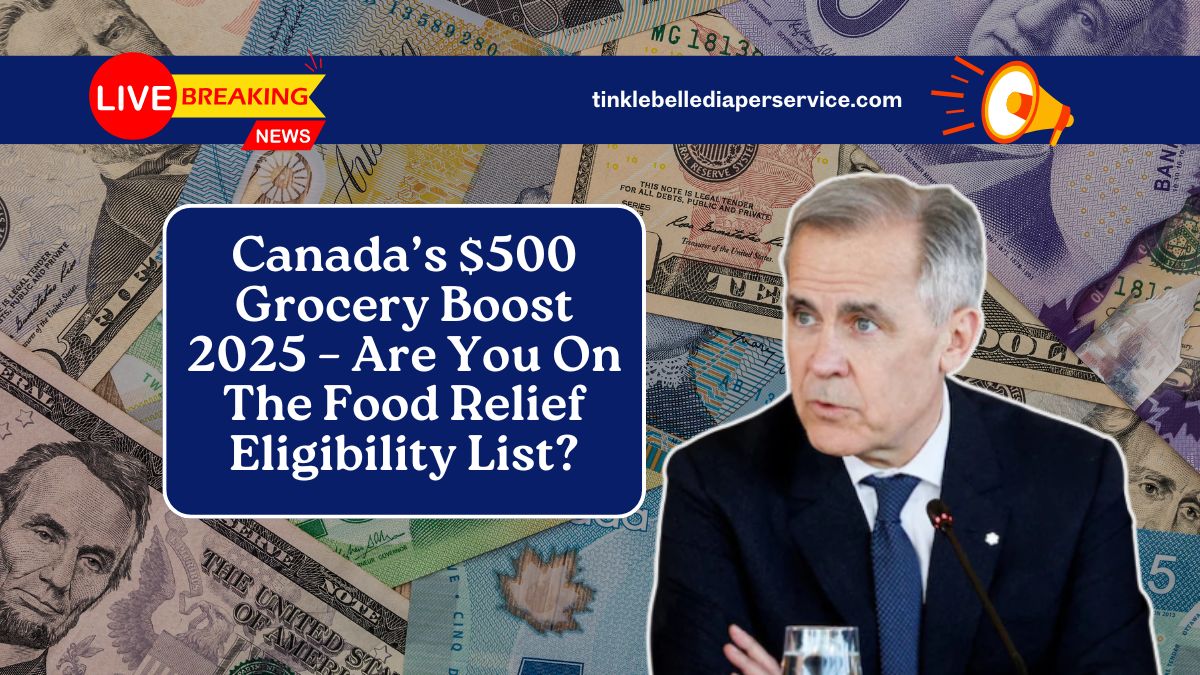As Canadian households continue to feel the pinch from inflation, rising grocery costs, and stagnant wages, the government has launched a $500 Grocery Boost in 2025 to provide much-needed relief.
This one-time tax-free payment will help millions of eligible individuals and families manage their essential expenses and stay afloat during this financially difficult time.
Why This Payment Matters Now
With food prices up by 3.8% and housing costs increasing by 3.4%, most Canadians are finding it harder to put nutritious meals on the table.
This $500 grocery relief is designed to directly support low- and moderate-income households, offering immediate help in a time when grocery bills are becoming increasingly difficult to manage.
Who Qualifies for Canada’s $500 Grocery Boost?
The eligibility criteria for the 2025 Grocery Boost are aligned with existing federal support programs and income thresholds. If you meet the following conditions, you may be entitled to receive the payment:
- You must be a Canadian resident for tax purposes as of June 2025.
- You are 19 years of age or older.
- You have filed your 2024 income tax return.
- You fall within the low-to-moderate income bracket as defined by the Canada Revenue Agency.
- You are eligible for or already receiving the GST/HST Credit.
This payment will be automatically issued—you do not need to apply separately.
Payment Structure and Amounts
The maximum payment is $500 per household, but actual amounts will vary based on family composition and income. Below is an estimate of how the payment is distributed:
| Household Type | Estimated Rebate Amount |
|---|---|
| Single adult | Up to $234 |
| Couple with no children | Up to $306 |
| Couple with two children | Up to $500 |
| Senior receiving GIS | Amount varies based on income |
Note: The final amount you receive will depend on your 2024 income tax filing and family size.
Important Payment Dates
| Event | Date |
|---|---|
| Direct Deposit Begins | June 10, 2025 |
| Paper Cheque Mailing Window | June 13–17, 2025 |
| Last Expected Payment Date | June 25, 2025 |
To avoid delays, make sure your direct deposit details and mailing address are up to date through your CRA account.
How to Get the $500 Grocery Boost
You do not need to submit a new application. Here’s how to ensure smooth payment:
- File your 2024 income tax return as soon as possible if you haven’t already.
- Log in to your CRA MyAccount and update your banking information and address.
- Check your GST/HST Credit status—if you’re eligible, you likely qualify for this boost.
Other Benefits You Might Be Eligible For
In addition to the Grocery Boost, eligible Canadians may also receive:
| Program | Description |
|---|---|
| Canada Child Benefit | Monthly payments for families with children under 18. |
| GST/HST Credit | Quarterly tax rebate to offset GST/HST expenses. |
| Canada Workers Benefit | Refundable tax credit for low-income workers. |
| Climate Action Incentive | Quarterly carbon rebate for eligible provinces. |
What to Do If You Don’t Receive the Payment
If you don’t see the funds by June 25, 2025, take these steps:
- Log in to your CRA MyAccount to check for updates.
- Confirm your income tax return has been filed and processed.
- Verify your banking or mailing information is accurate.
- Contact the CRA if there are any discrepancies.
The Canada $500 Grocery Boost 2025 is a timely lifeline for individuals and families struggling with the rising cost of food. With no application needed and automatic payments starting mid-June, it’s crucial to ensure your tax filings and CRA account information are up to date.
Don’t miss out—check your eligibility now, stay informed, and make the most of every support option available to you this year.
FAQs
Do I need to apply for the $500 Grocery Boost?
No. The payment is automatic for those who meet eligibility criteria and have filed their 2024 tax return.
Will this payment affect my other benefits?
No. The $500 Grocery Boost is tax-free and does not impact your eligibility for other federal or provincial benefits.
Can both spouses in a family receive the payment separately?
No. The payment is per household, not per person. The amount will reflect your household composition and income level.

